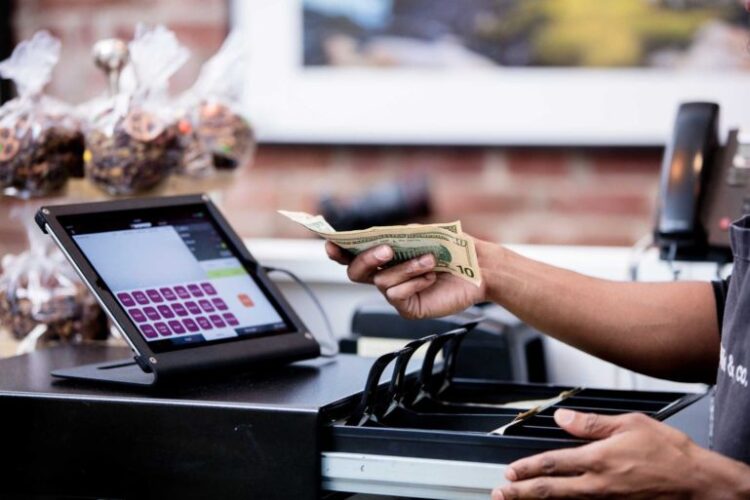Times are stressful. The repercussions of current events are hitting businesses, schools, and, of course, bank accounts. If you are worried about how your finances are going to fare in the upcoming months, read ahead to learn more about three common money-problems that are affecting citizens around the country.
Panic Buying

The nation is currently gripped with panic buying and hoarding, leaving stores with empty shelves and employees scrambling to replenish the stock. Grocery stores, convenience stores, and pharmacies have had a difficult time keeping up with the need for toilet paper.
As a way to stop the shortages, a variety of stores have imposed limits on shoppers, saying that they can only take one or two packages each. But people are finding that they have to search far and wide for a single package of two-ply toilet paper, even with these policies in place.
Other popular items that shoppers are snatching off the shelves are bottled water, anti-bacterial wipes, flour, milk, eggs, canned soup, and tissues.
What Can You Do?
Panic buying is a natural psychological response. People are worried about what the future holds. Stockpiling makes them feel a sense of control over something they have very little control over. It’s a quick way to find comfort in a time of discomfort.
So, why is it wrong? Panic buying is unfair to the community. People that either can’t afford to visit stores early or stockpile are going to miss out on essential supplies. When a large number of shoppers take more than their share, other shoppers are going to suffer.
It can also hurt your finances. When you spend emotionally instead of logically, you’re going to ignore your budget. You risk spending beyond your means and putting yourself in a financially precarious position. If an emergency expense crops up, you might not have any funds left to pay it in-full or on time.
The simplest solution to this problem is to try your best to shop as normal:

- Go grocery shopping once a week
- Do not overstock your pantry or fridge
- But for the present, not the future
- Write down a simple shopping list beforehand and follow it
- Stick to a strict budget to avoid overspending
- Stay calm, cool and collected
- Emergency Expenses
Ideally, everyone should have an emergency fund with enough savings to cover small, unexpected expenses. The fund is an excellent safety-net that you can fall back on when you don’t have any room in your budget or on your credit card to handle a cost.
Tapping into this resource will have little consequence. There will be no interest or penalties. The only issue that comes with using your emergency fund is that you will have to work hard to refill it as quickly as possible.
What Can You Do?
Having no emergency fund at this time can make you very vulnerable. If you encounter an unexpected emergency expense, your options to find funding will be limited.
Normally, you could find more work or sell an item to access funds quickly, but social distancing and business closures will make this very challenging.
Another solution is to ask a close friend or family member for a small loan, but they are likely to keep a close eye on their budgets for the time being.
You could apply for a bank loan. However, you may have to wait for weeks to get the funds that you need if they accept your application. That will be far too long to respond to an emergency like a broken pipe or stalling car engine.
When all other options aren’t available, you can visit MoneyKey.com, and you may be able to access the funding that you need for an unexpected emergency expense. You may apply for an installment loan or a line of credit, depending on what state you live in.
One of the simple benefits of applying for a short-term loan online is that you can continue to practice social distancing. You do not have to stand in-line or interact with a teller. You complete the application in the comfort of your home office or living room. While dealing with an emergency isn’t pleasant, this online borrowing process can make the experience a little easier.
Predatory Scams

Predatory scams thrive in times when people feel financially and emotionally vulnerable. They find easy targets when people are desperate for answers and support. Naturally, the country has seen a rise in emails, texts, and phone calls with ulterior motives.
Clicking on a single suspicious link could infect your computer with malware. Downloading an unknown attachment could lock down your system. Filling out a form with banking information could lead to identity theft.
What Can You Do?
The first thing that you can do to protect yourself and your personal finances from scams is to learn the popular methods for luring victims. When you can spot the red flags straight away, you’re not likely to become a victim.
One common red flag is when a text message, phone call, or email is offering you something that sounds too good to be true like no-strings-attached funding or surprising cures. Recently, there has been a surge of Medicare scams that promise vaccines and testing kits. Getting one of these messages isn’t a sign of good fortune — it’s a sign that you’re a scam artist’s next target.
These are some other practical tips that you should follow to avoid this specific money problem

- Do not click links, open attachments, or answer messages from any contact that you do not know.
- Do not give out personal information, banking information, usernames, or passwords.
- Be aware of messages that threaten legal action for not responding or filling out forms. Scams often use aggressive language and serious consequences, like job loss or jail-time, to bully victims into answering.
- Read the contact information carefully. Scammers use email spoofing to trick victims into trusting the sender.
Change your passwords regularly.
Your financial stability is important right now. Try your best to stick to your regular budget and avoid the temptations of panic buying. Have an emergency fund for unexpected costs. And be mindful of scams and predatory schemes that are after your earnings. These simple strategies can offer you a lot of protection and comfort in a stressful time.
 Hi Boox Popular Magazine 2024
Hi Boox Popular Magazine 2024



